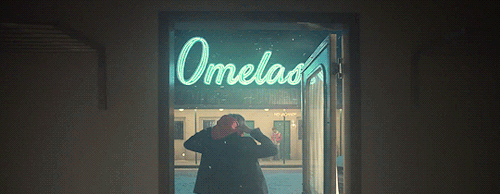 Title: The Ones Who Walk Away From Omelas
Title: The Ones Who Walk Away From Omelas
Author : Ursula K. Le Guin
Publisher : Creative Education, Inc.
Release date : April, 1997
Rating : 6/5

With deliberately both vague and vivid descriptions, the narrator depicts a summer festival in the utopian city of Omelas, whose prosperity depends on the perpetual misery of a single child.

The Ones Who Walk Away From Omelas (TOWWAFO) is a short story of about 10 pages. Initially, I didn’t plan on reviewing it. It was just a passion reading, encouraged by the music video of a K-Pop band that I love in which Omelas is mentioned (“Spring Day” by BTS). Go take a look; although you probably won’t understand a word of what they’re saying, the song’s melody is upbeat and melancholic at the same time, the rap/singing is on point, the cinematography is actually quite beautiful, and the video has tremendous depth and meaning. (Ok now I have the urge to publish a whole article on BTS). Back to the topic.
TOWWAFO is… a masterpiece. In less than 10 pages, it managed to pave a path to my mind, to my heart, to my soul. Its influence is still rattling in my head. I’m constantly thinking about it, its meaning, its consequences.
The trouble is that we have a bad habit, encouraged by pedants and sophisticates, of considering happiness as something rather stupid. Only pain is intellectual, only evil interesting.
How more wrong can we get?
As you can deduce from the title and the synopsis, once the citizens of Omelas are made aware of the misery of this particular child, some of them choose to accept this sacrifice and stay in their ideal life, for they cannot fix it without destroying everything else. Some of them choose to leave, as they cannot live with this on their mind. Those are the choices they have. For this city, in order for it to remain perfectly happy and prosperous, it needs only one imperfection, only one atrocity to balance everything else, and it’s the child.
Does the benefit of many outweigh the suffering of few? Should perfection be achieved at the expense of someone else? Is the happiness of thousands of people worth the suffering of a child?
That is exactly what Le Guin presents to us in her mesmerizing, yet chilling story. Happiness is, after all, not stupid, nor simple. With only a few words, this incredibly powerful and complex short story delivers some of the most fundamental questions in our society. Think about it. No, please, think about it.
I honestly understand both sides, and it’s part of the reason why TOWWAFO is so emotional. I understand those who stay, because I too dream of a happy, harmonious, perfect life. The idea of leaving my happily ever is horrifying to me. But I also understand those who leave, because I have empathy and conscience, and I don’t think I’d survive contributing to this child’s suffering.
But Le Guin’s story isn’t only about that, I realized. As the title goes, it’s also about the ones who walk away. The ones who leave everything they’ve known behind, to walk towards an unknown destination. Because that’s exactly their state of mind: they don’t know where they’re going, but surely anywhere’s better than here? They’re leaving because it’s not working for them anymore. And although they may start their walk on their own, they aren’t the only ones leaving or who left. They never walk alone.
The place they go towards is a place even less imaginable to most of us than the city of happiness. I cannot describe it at all. It is possible that it does not exist. But they seem to know where they are going, the ones who walk away from Omelas.
Nowadays, those conflicts are still very relevant. We have, on the one hand, the many vs few dilemma. On the other hand, we have the familiar vs unknown dilemma.
From childhood to adulthood, we walk towards the unknown. We don’t have a map of the World of Adults, we don’t know how to navigate its waters, but we are headed there nonetheless. We leave the utopian world of our childhood.
In mourning, we must leave behind the world in which our close one is still present, in order to face the world without them.
The moment we open our minds, we only have but two choices : close our eyes, or keep them open.
But they seem to know where they are going, the ones who walk away from Omelas.
